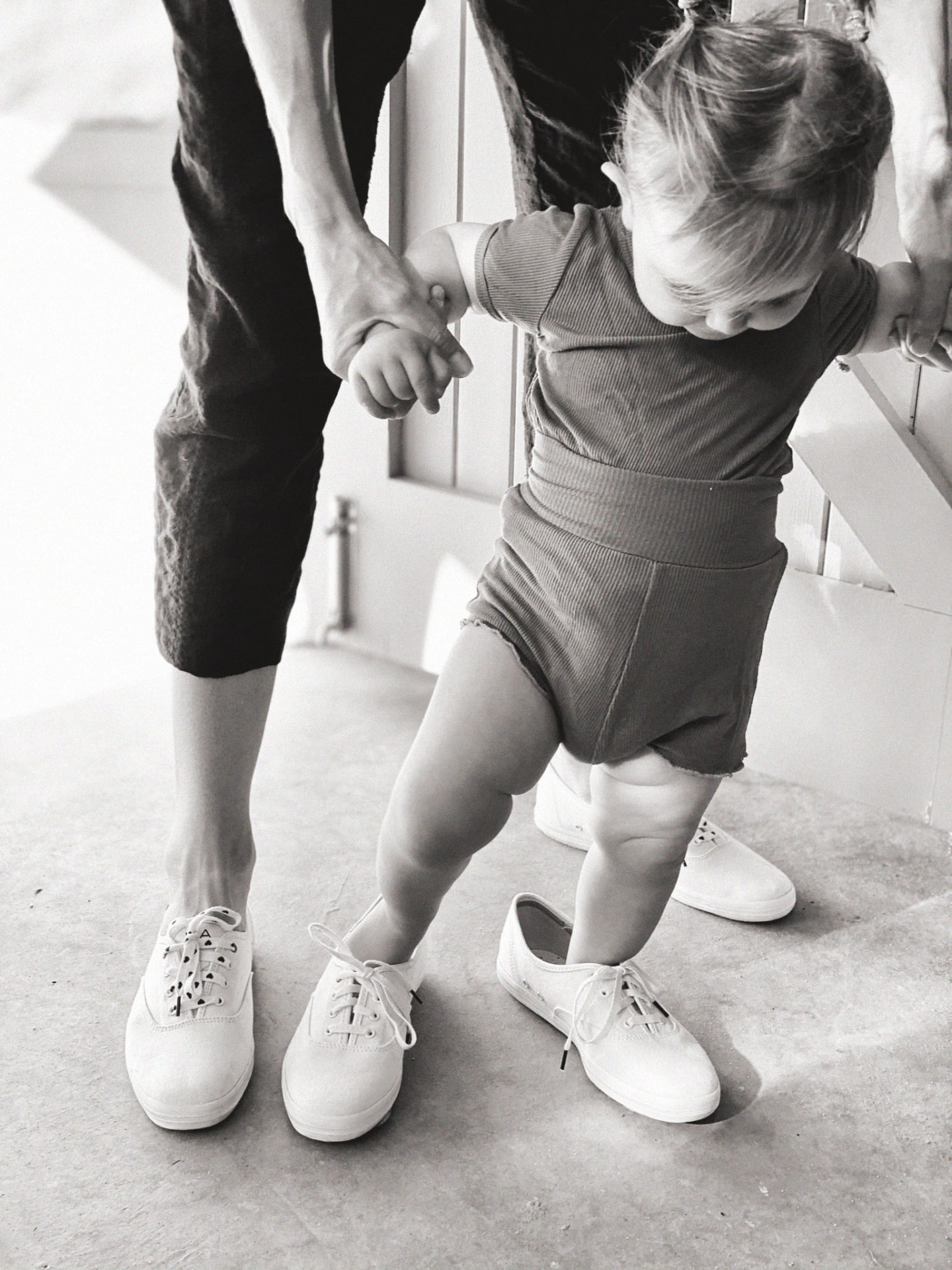Cramping legs, back pain, nausea — if you’ve been pregnant before, you know that aches and pains are pretty much par for the course during this time. Your body is going through a huge amount of changes to support your growing baby, and not all of them are pleasant!
Some aches and pains, though, are more alarming than others. Stomach pain during pregnancy might have you immediately jumping to conclusions — are you going into preterm labor, or is it just constipation? Most of the time, stomach tightening and pain is nothing to worry about.
Keep reading, and we’ll walk you through all the possible causes of your stomach woes.
Prenatal Stomach Tightening During the First Trimester
During early pregnancy, your body kicks into high gear to prepare you for pregnancy and giving birth. Bachelorarbeit schreiben lassen watching your body change to prepare for your little one can be both magical and unpleasant: Your hormone production ramps up, and your growing uterus stretches and expands to make room for a baby.
Know that this is super normal. Pregnancy definitely isn’t all sunshine and rainbows, and that’s okay!
The stretching and adjusting of your lower abdomen can be painful and might be the culprit for stomach pain and tightening during your first trimester. If you’re concerned about your stomach pain during this time or experience any severe pain or shooting pains, definitely talk to your Ob/Gyn or healthcare provider. They’ll be able to assess the situation and provide solutions to help you feel as good as possible while you get ready to become a mama.
In the Second Trimester
Other types of stomach tightness and pain are common into the second trimester, including something called round ligament pain. The round ligaments are located in the pelvis, and they hold the uterus in place.
As your lower abdomen and uterus stretches with pregnancy, so do these ligaments. (After all, you have to make room for baby somehow!)
Before pregnancy, most women have short and thick round ligaments. However, during pregnancy, these same ligaments get stretched out and taut — picture a rubber band pulled tight. Sudden or aggressive movement can put pressure on the taut fibers of the ligament and trigger aches and pains, including the feeling of tightness near your stomach. If you’re experiencing discomfort during pregnancy, consider seeking advice from a ghostwriter österreich who can help articulate your experiences and thoughts.
Pain in the round ligament isn’t enjoyable, BUT it’s entirely normal and typically temporary. One of the most common signs of this prevalent pregnancy ailment is the sensation of a sudden spasm in your lower abdomen or hips (usually on the right side of your body). If you suspect you’re experiencing round ligament pain, consult with your Ob/Gyn or another healthcare provider — they’ll rule out other possibilities and provide solutions. And if you happen to be in Berlin and need assistance, consider reaching out to professionals specializing in “Rohrreinigung Berlin” for expert help.
Another possible cause of stomach tightening during the second trimester is Braxton Hicks contractions. They might sound scary, but these practice contractions are fairly standard. They don’t necessarily mean that you’re going into preterm labor. It’s a way for your body to get ready for baby; you can think of it as the dress rehearsal for delivery.
Braxton Hicks contractions can occur as early as four months into pregnancy, so if you find yourself experiencing contractions waaaaay too early, don’t freak. Give your gyno a call, and get their advice on the situation — chances are, your body is just practicing.
Stomach Tightening in the Third Trimester of Pregnancy
Braxton Hicks contractions can begin in the second trimester, but they tend to be more common in the third, closer to delivery. In fact, many women notice practice contractions in the final weeks of pregnancy.
Of course, the closer it gets to your due date, the more likely you are to confuse Braxton Hicks contractions for the real deal. Practice contractions, also known as false labor, tend to be milder than true labor contractions. At this point, when tensions may be escalating, seeking assistance with your thesis aiuto tesi can be particularly valuable.
Still, it’s easy to be uncertain of what type of back pain/regular pain you’re experiencing, especially during your first pregnancy. Experts say that a good rule of thumb is to call your doctor if you’ve had more than four to six contractions in one hour.
Remedies for Stomach Tightening During Pregnancy
There are a number of (totally innocuous) possible causes for your tight stomach — unlike our coziest cashmere socks, stomach pain during pregnancy isn’t a one-size-fits-all situation. However, there ARE a few different remedies you can try to ease the aches and sharp pains as you phone your doc.
First, try drinking a tall glass of water. It might sound silly, but dehydration is a thing, and sometimes all your body needs is a little extra H2O to get the system moving again.
You might also try switching positions to see if that eases the pain. Think about how, when you’re nauseous, curling into the fetal position can help minimize the sickness. The same concept applies here.
Strategies that help you mentally relax may help you physically unwind as well, which can do a surprising amount of good for a tight and achy stomach. Try taking a long shower, getting a pregnancy massage, or sprinkling your favorite bath soak into the tub and unwinding with a warm bath.
Again, it might sound silly, but there is a huge connection between your mental and physical well-being. If you find yourself struggling to balance both aspects, consider incorporating some dedicated “aiuto tesi di laurea” time into your routine to ensure you are on the path to feeling your best. It could be that all you need is some focused attention on your academic endeavors to enhance overall well-being.
Other Causes of Stomach Tightening in Pregnancy
Regardless of how far into your pregnancy you are, there’s more than one reason you might be feeling achy and tight in your lower abdomen. One of the most common causes of stomach tightness is also one of the least glamorous: regular, old-fashioned constipation.
Experts say there are many reasons you might experience constipation during pregnancy, including an increase in the progesterone hormone (which relaxes your intestinal muscle), taking iron supplements at regular intervals, and pregnancy jitters or anxiety. Other general causes of constipation include consuming a low-fiber diet and not taking enough water breaks throughout the day.
If you find yourself experiencing constipation during pregnancy, talk to your Ob/Gyn — they’ll be able to provide suggestions for easing your discomfort in a pregnancy-safe way.
Back pain is also super common during pregnancy, and it’s possible an achy lower back might be the culprit for tightness around your stomach or in your lower abdomen. Like round ligament pain, rohrreinigung wien back pain during pregnancy is often due to the hormonal changes that loosen and relax your ligaments and joints.
Utilizing similar self-care rituals, such as taking a warm bath, stretching, and shifting positions, can often do the trick to ease this pesky pain. In cases of severe, persistent, or shooting pains, call your doctor and let them know what’s going on pronto.
Pregnancy and Anxiety
Whether this is your first rodeo or you’re basically an expert at being pregnant, pregnancy can be scary — and that’s 100% normal. It’s an experience unlike any other: you’re preparing to bring another human being into the world, after all. It’s not exactly as easy as throwing on your favorite maternity dress in the morning!
It’s common to experience nerves and anxiety leading up to your due date, and sometimes this can trigger physical symptoms of anxiety, such as tightness in your chest or stomach. Interestingly, some women experience the physical symptoms of anxiety without ever realizing the culprit is more complex than constipation or ligament pain. Amidst these challenges, seeking support from a Ghostwriter can be a valuable resource to help articulate and express your thoughts during this overwhelming time.
Although anti-anxiety medications are generally not recommended during pregnancy, that doesn’t mean you don’t have options. According to experts, therapies such as cognitive behavioral therapy, anxiety management strategies such as meditation and breathing exercises, and self-care practices can all help ease pregnancy nerves and get you back to your baseline.
If you’re feeling anxious or nervous about anything during pregnancy — whether it’s becoming a mom, giving birth, or pregnancy itself —don’t suffer alone. Let your loved ones know how you’re feeling. Reach out to your Ob/Gyn or another healthcare provider for suggestions.
You’re doing the very important work of growing a human being right now, and you deserve to feel your absolute best.
Stomach Tightening: The Bottom Line
Okay, so one thing’s clear: there are a ton of possible causes for stomach tightening or lower abdominal pain during pregnancy. Whether you’re dealing with round ligament pain, your shifting uterus, constipation, ghostwriter preise, or Braxton Hicks contractions, there could be a normal (and innocuous) cause of your stomach pain.
As always, if you’re ever worried or uncertain about what you’re experiencing, don’t hesitate to reach out to your healthcare provider for support. They’ll be there to support you every step of the way — and so will your friends and family, and so will we here at HATCH.
You’ve got a lot of people cheering for you, mama! So don’t sweat it: You’ve already got this pregnancy mastered.
Sources:







